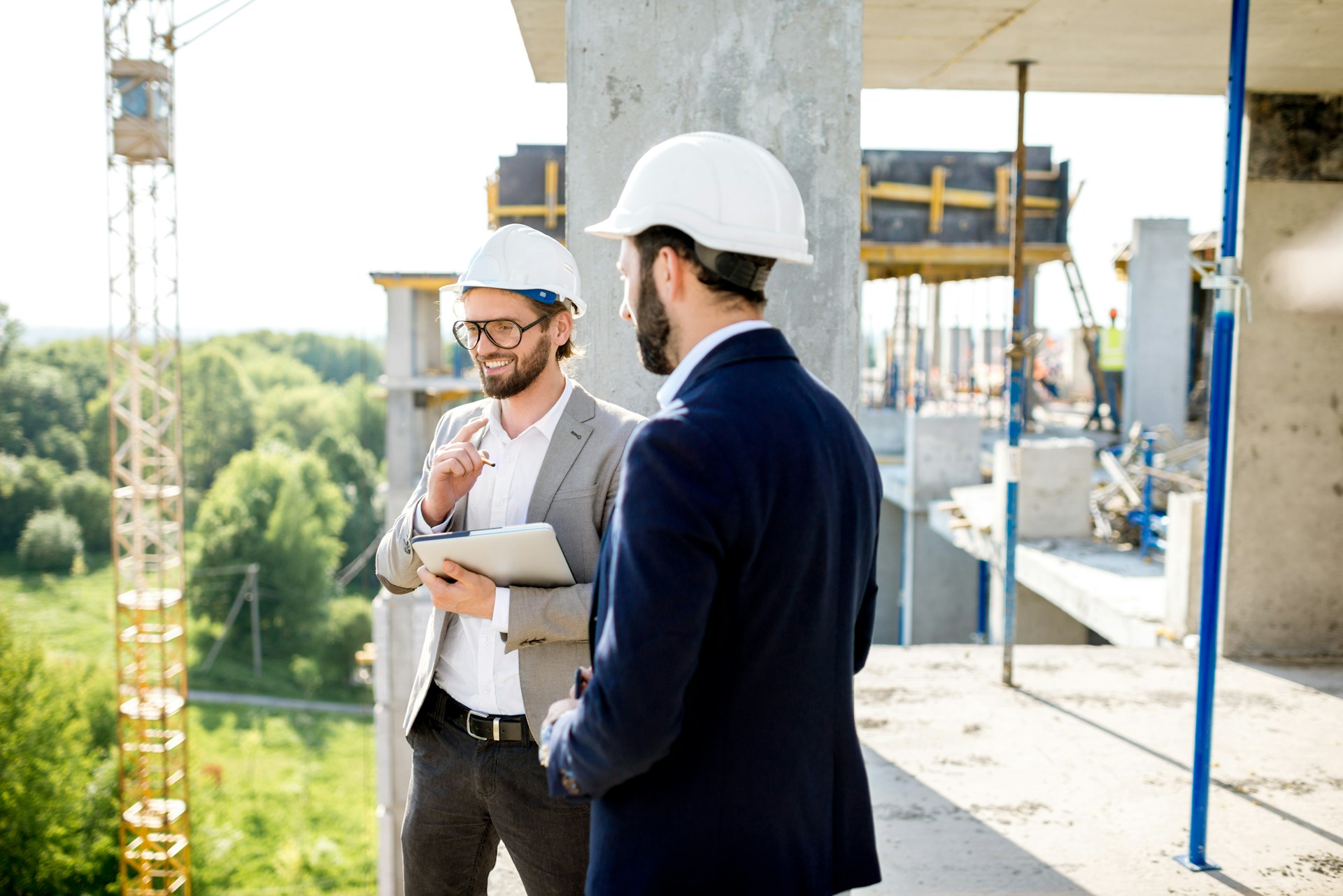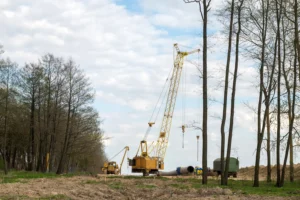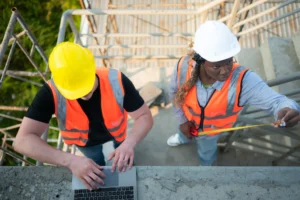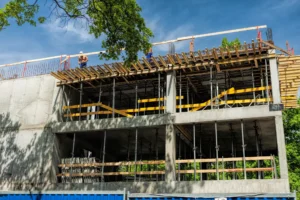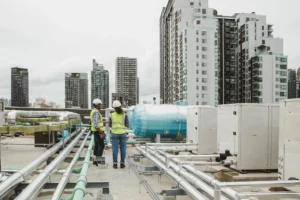Civil construction is the backbone of any successful industrial project. It involves all the foundational work needed to support large industrial facilities, such as factories, plants, and warehouses. Without this essential groundwork, these massive structures would not be stable, safe, or functional. The role of civil construction goes beyond just building; it also includes planning, designing, and maintaining infrastructure. This makes it a crucial element in the development and sustainability of industrial sites.
Large industrial facilities require robust and durable infrastructure to handle heavy machinery, large volumes of materials, and complex operational systems. Civil construction provides this by ensuring that every aspect of the site, from the ground up, is built to meet specific needs. This includes constructing roads, foundations, drainage systems, and more. Each component must be meticulously planned and executed to ensure the facility operates efficiently and safely.
Understanding the critical role civil construction plays in industrial projects helps in appreciating the complexity and expertise involved in these large-scale developments. It highlights the importance of having a skilled team that can address the unique demands of industrial sites. This article will delve into the various elements of civil construction, its key services, and the importance of quality control and safety in supporting large industrial facilities.
Understanding the Role of Civil Construction in Industrial Projects
Civil construction is essential to the success of industrial projects. It involves a variety of activities that form the backbone of any large-scale facility. This includes everything from land clearing and grading to laying foundations and constructing vital infrastructure like roads, drainage systems, and utilities. These tasks are crucial because they ensure the stability and functionality of the finished structures.
In industrial projects, the role of civil construction extends beyond just the physical construction. It also includes the planning and design phases, where engineers and architects work together to create a blueprint that meets the specific needs of the facility. This planning takes into account various factors like load-bearing capacities, soil conditions, and environmental impact. By addressing these elements during the initial stages, civil construction ensures the long-term success and sustainability of industrial facilities.
Key Civil Construction Services for Large Industrial Facilities
- Site Preparation: This includes land clearing, excavation, and grading to create a suitable foundation for construction. Proper site preparation is essential to ensure the stability and safety of the structures that will be built.
- Foundation Work: Laying a strong foundation is critical for any industrial facility. This includes pouring concrete, building footings, and installing piers. A solid foundation supports heavy machinery and large structures, preventing future settling and structural issues.
- Road and Pavement Construction: Internal roads and pavements are key components of an industrial facility. They allow for the easy movement of goods and machinery. Road construction involves laying down asphalt or concrete surfaces that can withstand heavy loads and constant use.
- Drainage and Utilities: Effective drainage systems prevent water accumulation, which can damage structures and hinder operations. This involves installing pipes, culverts, and drainage channels. Utility installation includes setting up essential services like water, electricity, and sewage systems.
- Structural Concrete Work: Civil construction also encompasses the creation of various concrete structures such as retaining walls, piers, and columns. These elements provide additional support and stability to the facility.
By providing these key services, civil construction ensures that large industrial facilities have a solid and functional foundation. Each service is tailored to meet the unique demands of the project, laying the groundwork for a successful and long-lasting industrial site.
Importance of Quality Control and Safety in Civil Construction
Quality control and safety are paramount in civil construction for industrial facilities. Ensuring that every aspect of the project meets high-quality standards helps prevent future problems and increases the longevity of the structures. This involves rigorous inspections, tests, and adherence to established building codes and regulations. By maintaining strict quality control measures, we can make sure that each component of the project is up to par and capable of withstanding the demands of industrial use.
Safety is equally critical. Construction sites are inherently dangerous, with heavy machinery, large vehicles, and significant heights involved. Implementing effective safety protocols protects workers from accidents and injuries. This includes providing proper training, using protective equipment, and conducting regular safety drills and audits. A strong focus on safety ensures the well-being of everyone on-site and minimizes the risk of costly delays or legal issues resulting from accidents.
Overcoming Common Challenges in Civil Construction for Industrial Sites
Civil construction for industrial sites comes with its own set of challenges, but these can be effectively managed with the right strategies. One common challenge is dealing with adverse weather conditions. Rain, snow, and extreme temperatures can slow down or halt construction activities. To overcome this, we employ weather-resistant materials and techniques, plan for weather contingencies, and adjust schedules as needed to keep the project on track.
Another significant challenge is managing the logistics of large-scale construction. Industrial projects often require a vast array of materials, equipment, and manpower. Coordinating these elements can be complex, but proper planning and organization streamline the process. We use advanced project management tools to track resources, schedule deliveries, and allocate tasks efficiently. This helps us ensure that everything is where it needs to be, when it needs to be there, for a smooth and efficient construction process.
Working around existing utilities and structures also poses difficulties. Industrial sites may already have pipelines, power lines, or buildings that need to be considered during construction. We conduct thorough site assessments and work closely with utility companies to avoid disruptions. Developing detailed plans and using specialized equipment help us navigate these obstacles effectively, maintaining the project’s progress.
Conclusion
Civil construction is a fundamental element in the development of large industrial facilities. From site preparation and foundation work to quality control and safety protocols, each aspect plays a crucial role in ensuring that industrial projects are completed successfully and sustainably. Understanding the importance of these activities and being prepared to address common challenges helps us create robust and efficient industrial sites.
At Industra Construction Corp., we are committed to delivering high-quality civil construction services that meet the unique demands of industrial projects. Whether you’re planning a new facility or upgrading an existing one, our experienced team is ready to provide the expertise and support you need. Contact us today to learn more about how we can help you achieve your construction goals.


